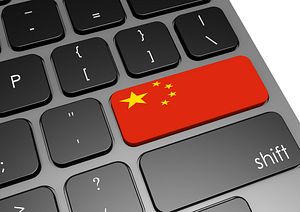China seems to be trying to oust U.S. cyber giant Microsoft from its markets. Earlier this year, China banned government employees (one of China’s largest purchasing blocs) from installing Microsoft’s new operating system (OS) on their computers. Microsoft is also the target of an antitrust probe by the Chinese government, as are several other major foreign firms. The targeting of Microsft is only half of the equation, however: China must also have in place an alternative, particularly for the widely used Windows OS.
Now such an alternative is on the horizon. Xinhua reports that China’s first domestic OS for desktop computers could be ready as early as October 2014. The system will roll out for desktops first, but will eventually be adapted for use on mobile devices, which represent a rapidly growing segment of China’s market.
The article cites Ni Guangnan of the Chinese Academy of Engineering, who heads “an OS development alliance” that was officially established in March. Ni’s descriptions of his own work and the current environment in China’s IT industry are revealing of both current realities and China’s aspirations. Ni says that the OS development group faces constant issues, including lack of research funds and disagreements within the group on the best avenues to pursue. He also points out that current Chinese efforts to develop a mobile OS are largely piggybacking off of Google’s Android OS, meaning that the developers can’t claim intellectual property rights. To solve these issues, and ensure the development of China’s own domestic OS, Ni suggests that the government should take a leadership role.
Beijing will be only too happy to oblige. In fact, Xi Jinping himself called for more government support for China’s IT industry back in February. Xi pledged to make China into a “cyber power.” In Xi’s eyes this requires a dual emphasis on developing indigenous technologies and ensuring cybersecurity. Beijing sees these two tracks as going hand in hand — in the wake of the Edward Snowden leaks, which revealed the extent of NSA spying, China has major security concerns about U.S. tech firms like Microsoft, Apple, and Google. And what better way to reduce reliance on these foreign giants (and thus reduce cybersecurity concerns) than by developing home-grown alternatives that will boost China’s prestige and its economy?
The main issue with moving away from Western software and hardware, whether Microsoft’s OS or IBM’s servers, has been that there are no good alternatives in place. Ni’s group is trying to change that through the release of a made-in-China OS — a product Beijing is ready to embrace. In his comments to Chinese media, Ni said, “Our key to success lies in an environment that can help us compete with Google, Apple and Microsoft.” Beijing is doing its part to provide that environment by handicapping the Western competition. Now it’s up to Ni and others like him to provide an “OS with Chinese characteristics.”
































